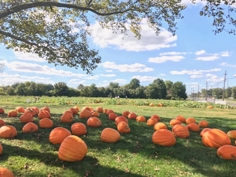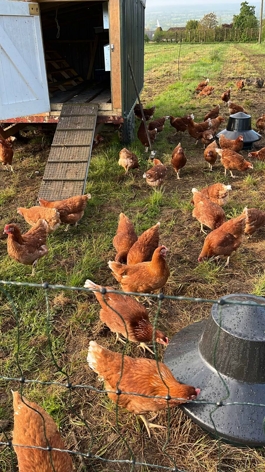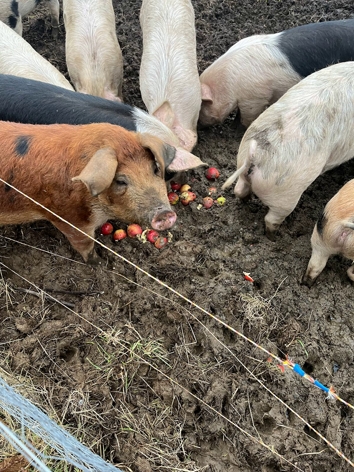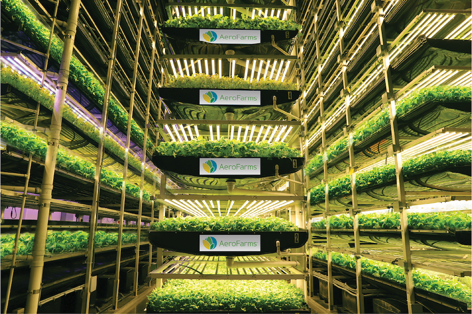

It seems that lately The English Apple Man has reported on so many challenges facing our fruit industry, mainly due to our Supermarkets intransigence to the desperate need for trade fairness and sustainable prices back to the growers
But is there another way? Is the future for 'many' of our growers better managed by looking back to the farming principles of the past?
This week The English Apple Man visited James Smith at Loddington Farm's new farm shop, the next step in James determination to step back from the uncertainty and pressure of supplying Supermarkets.
Below: The new Loddington Farm Shop opened on 18 January this year
Loddington Farm is run by James Smith. After graduating from Reading University with a degree in crop science, he pursued a career in fresh produce, until 18 years ago, when he joined his father on his great, great grandfather's apple farm in the beautiful Kent countryside. James great, great grandfather was the first to plant BRAMLEY apples in Kent during the 1880's
OUR PRINCIPLES
In 2016 James was awarded a Nuffield Scholarship which enabled him to travel and look at ways of growing fruit for the UK market that could be profitable. Disillusioned with fruit growing in the UK due to concerns over the huge financial risks and the impact of chemicals on people's health, James decided to put his extensive knowledge and experience to use.
He was encouraged to start a programme of self-education to see how we can produce better food - and began a journey in producing food using nature, instead of chemistry in farming systems. In 2020 in one orchard 'he spent more money on books than agrochemicals' in the quest to grow chemical free food.
Over the last ten years, The English Apple Man has featured Loddington Farm in a number of my weekly Journals, capturing the journey from high quality apple and pear production and the transition to regenerative farming.
Click on Loddington Farm - Regenerative Farming
Click on 5 principles of regenerative farming
Loddington Farm Shop is situated on the edge of the farm, with entry from Linton via the Heath Road at the intersection with Loddington Lane.
Accompanied by my wife, as we entered the farm shop. we were welcomed by Harry assistant farm manager at Loddington who was helping out for the day; Harry said the volume of visitors since the shop opened 3 weeks ago has kept us very busy.
Below: left. View inside towards the tills and right Harry welcomed us to the new farm shop
Before touring the shop, we enjoyed a coffee with James who updated me on the ongoing development of Loddington Farm. James said Loddington Farm is in transition to becoming registered as Certified Organic and expanding the various enterprises.
As well as the orchards which produce fruit for the Farm Shop and OWLETS APPLE JUICE, Apricots, Cherries and Asparagus complement the product range. The free range chickens and pork are proving to be very much in demand. James said the initial 100 laying hens has had to be increased by 100 more and now the shop is open demand is rising exponentially and more are laying hens are coming. At the moment James thinks they will need 1000 to keep up with demand.
 James emphasised how important it is to make sure each enterprise is 'profitable in its own right' it would be so easy to get carried away and produce crops that were not self sustaining!
James emphasised how important it is to make sure each enterprise is 'profitable in its own right' it would be so easy to get carried away and produce crops that were not self sustaining!
I forgot to mention the Pumpkins James grew in 2023. After harvesting, the pigs were let loose to scavenge the remains and cultivate the soil adding nutrients and leaving the field ready for sowing spring beans or oats.
Below: left. Loddington Chickens and right. Loddington Pigs


Below: left. James and Shop Manager Richard Fisk and right. The English Apple Man, Mrs EAM with James Smith
The vegetable display had a plethora of wonderful fresh vegetables; 'perused and a selection purchased' by Mrs EAM
Below: left and right. fresh vegetables
Below: left. Fruit display and right. Juice display counters
Below: left and right. Impressively stocked chill cabinets
Below: left. Cakes and preserves and right. Fresh meat cold cabinets
There are many excellent farm shops throughout the Kent Countryside and delivering a point of difference is key to the success of any shop. Loddington Farm Shop is delivering 'that point of difference' with a selection produce not only produced on the farm, but grown and reared using the most sustainable management principles. Pork reared on farm, Eggs from chickens roaming freely and an increasing supply of fruit, vegetables and the OWLET fruit juices produced on the farm.
Below: A nice point of difference; these cards and a mix of tea towels and table cloths add a bit of fun
Click on LODDINGTON FARM website
Returning to my title; Is this the future? Learning from the past!
In years gone by traditional farming was a mixed enterprise, rotation of crops integral to the soil management.
"Traditional farming refers to age-old agricultural practices that have been passed down through generations. These techniques hold significant value for modern agriculture as they promote sustainability, preserve biodiversity, and contribute to soil health. By adopting traditional methods, farmers can enhance their resilience to environmental challenges and reduce their dependence on high-input technologies".
What James is seeking to create is fully sustainable food production, without the need for external inputs and to sell the products to the local community in which he lives. Of course not every farmer/grower lives in or near a Town or City with a large consumer base.
 However, in my recent years, the subject of 'Urban Farming' is a subject widely discussed and promoted by academics at a Farming College with the need for urban farming. e.g. close to the consumer as the cost of transporting food from long distances will become unsustainable. Already we are seeing examples of Vertical Farming appearing nationally and internationally!
However, in my recent years, the subject of 'Urban Farming' is a subject widely discussed and promoted by academics at a Farming College with the need for urban farming. e.g. close to the consumer as the cost of transporting food from long distances will become unsustainable. Already we are seeing examples of Vertical Farming appearing nationally and internationally!
So, will the future see food production like Loddington Farm on the edge of Towns or Cities supplemented by Vertical Farming enterprises located within the urban communities?
![]() That is all for this week
That is all for this week
Take care
The English Apple Man